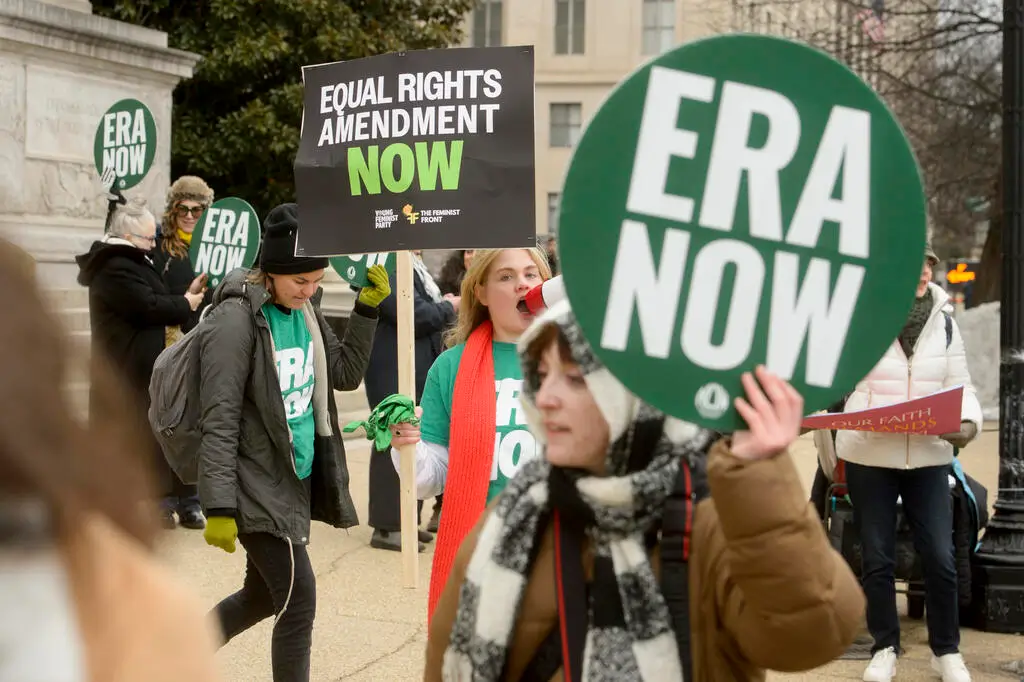Biden’s Controversial Push for the 28th Amendment Draws Criticism
Biden’s 28th Amendment Push Sparks Legal Debate on Gender Equality

- Biden’s Bold Declaration of the 28th Amendment Sparks Controversy
The announcement of the 28th Amendment, spearheaded by President Biden, has sparked heated debates among legal experts and political commentators. This amendment, referred to as the Equal Rights Amendment (ERA), aims to prohibit discrimination based on gender. However, critics argue that Biden’s move is more symbolic than substantive.
- The 28th Amendment: What Is It?
The Equal Rights Amendment was first introduced in 1972 to ensure gender equality under the U.S. Constitution. Despite its original promise, the amendment failed to gain the required three-fourths state ratification within the stipulated timeline, initially set for 1979 and later extended to 1982.
In 2020, Virginia became the 38th state to ratify the amendment, meeting the constitutional threshold. However, this ratification came decades after the deadline, leaving its validity in legal limbo. Despite these complications, Biden’s announcement last week declared the amendment as law, drawing widespread reactions.
- Cynicism or Progress?
President Biden emphasized the importance of the amendment, stating, “It is long past time to recognize the will of the American people. The 28th Amendment is the law of the land, guaranteeing all Americans equal rights and protections under the law regardless of their sex.”
While Biden’s remarks highlight the administration’s commitment to gender equality, legal experts have been quick to dismiss the announcement as politically motivated.
- Criticism from Legal Scholars
Andrew McCarthy, a former Assistant U.S. Attorney, labeled the move as “cynical and irrelevant,” noting, “If Biden truly believed in the ERA’s importance, he would have addressed it at the start of his presidency, not during its twilight.” McCarthy also pointed out that the president has no constitutional role in the amendment process, rendering Biden’s statement more symbolic than legally binding.
Jonathan Turley, a law professor at George Washington University, echoed these sentiments, describing the announcement as “an embarrassingly pandering moment.” He argued that Biden’s declaration lacks legal standing, as it fails to address the procedural hurdles preventing the ERA’s formal inclusion in the Constitution.
- The Archivist’s Role and Legal Hurdles
For an amendment to become official, it must be certified by the national archivist. However, the Office of Legal Counsel (OLC) previously ruled that the ERA’s ratification deadline is valid and enforceable. This position has been upheld by multiple court decisions, further complicating Biden’s declaration.
The National Archives released a statement in December clarifying that any extension or removal of the deadline would require congressional action or judicial intervention. Without these steps, the archivist cannot legally publish the ERA as part of the Constitution.
- Timing of the Announcement
When questioned about the timing, Biden remarked, “I had to get all of the facts and contacted every constitutional scholar to ensure this was the right decision.” However, critics argue that the timing is politically motivated, given its proximity to the end of his presidency.
- The Path Forward for the Equal Rights Amendment
To formally include the ERA in the Constitution, advocates must either restart the ratification process or secure congressional approval to extend the original deadline. Legal experts agree that Biden’s declaration does not resolve these fundamental issues.
The Equal Rights Amendment represents a crucial step toward gender equality, but its legal journey remains fraught with challenges. While Biden’s announcement underscores the amendment’s importance, it also highlights the complexities of constitutional law and political strategy.
Stay informed about this developing story and other trending topics at Trendsnip.



